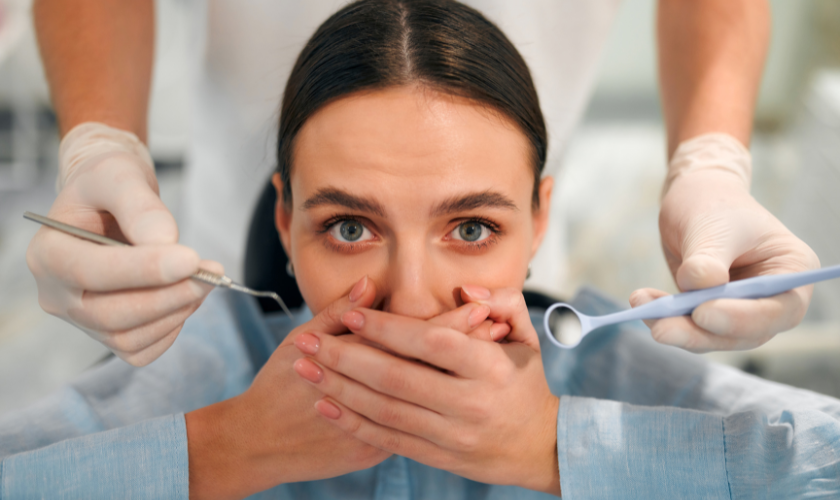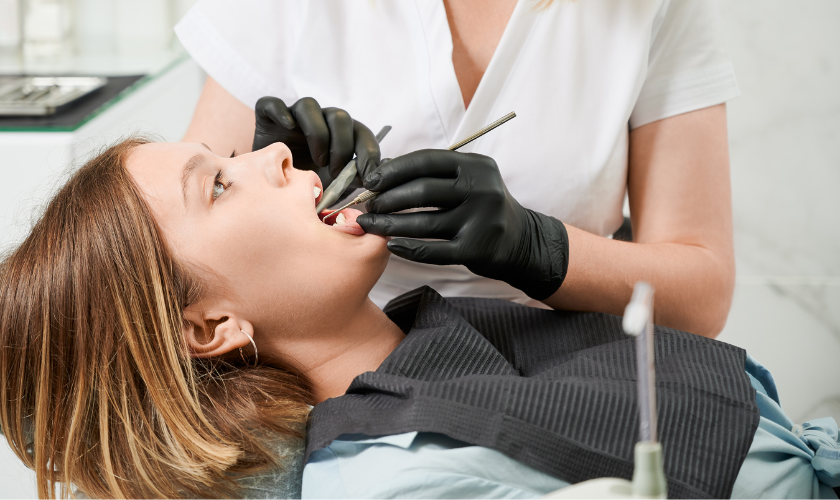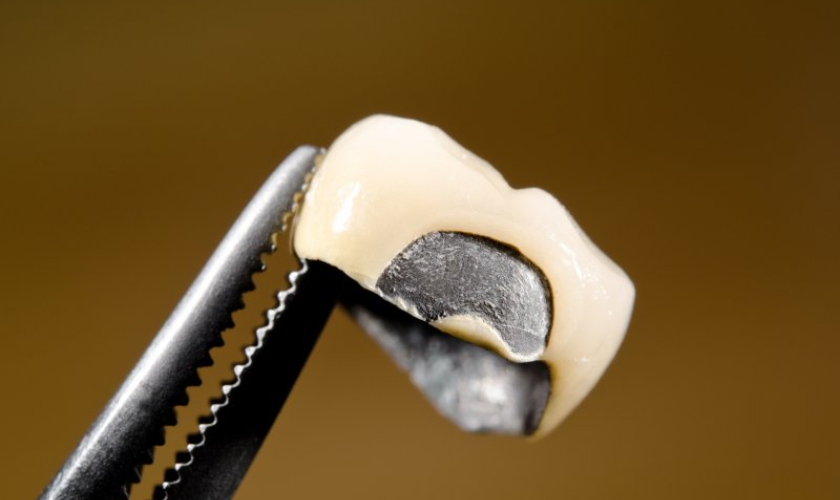4034 US-9 Howell, NJ 07731

Dental issues can strike at any time, often without warning. Knowing when to seek emergency dental care is crucial for maintaining your oral health and preventing further complications. Ignoring certain symptoms can lead to severe problems that may require extensive treatment. So, when is it time to call your dentist?
Signs You Need Emergency Dental Care

Not all dental problems require a trip to the dentist right away. However, certain situations necessitate prompt attention to prevent complications or further damage. Here are some telltale signs:
- Severe toothache: A persistent, throbbing toothache that doesn’t subside with over-the-counter pain relievers could signal an infection or abscess. Don’t wait for this one out – see a dentist ASAP.
- Knocked-out tooth: Time is critical when a tooth gets knocked out. If you can locate the tooth, try to gently push it back into the socket (without touching the root) and hold it in place. If that’s not possible, store the tooth in milk and head straight to the dentist. The sooner you act, the better the chances of saving the tooth.
- Cracked or broken tooth: A cracked or broken tooth can cause significant pain and leave you vulnerable to infection. Depending on the severity of the damage, the dentist might recommend repair or extraction.
- Severe bleeding: Excessive bleeding after a dental procedure or injury requires immediate attention. Apply gentle pressure to the bleeding area with gauze and seek professional help.
- Swollen face or jaw: Facial swelling can indicate an infection that needs prompt treatment with antibiotics.
- Loose tooth: An adult tooth that feels loose can signify underlying gum disease or trauma. Don’t ignore it – a dentist can diagnose the cause and recommend treatment.
- Dental abscess: An abscess is a pus-filled infection at the root of a tooth. It can cause significant pain, swelling, and even fever. Emergency dental care is crucial to drain the abscess and prevent the infection from spreading.
When Not to Delay Seeking Emergency Dental Care
Certain symptoms should never be ignored. Delaying treatment can lead to more severe health problems.
- Intense Pain: Severe pain that doesn’t subside with over-the-counter pain relief is a sign that you need professional help. Pain is your body’s way of signaling that something is wrong.
- Swelling: Swelling in your gums or face can indicate an infection. If left untreated, the infection can spread, causing more serious health issues.
- Bleeding: Uncontrolled bleeding from your gums or mouth is a serious concern. If you can’t stop the bleeding, seek emergency dental care immediately.
Finding the Right Emergency Dentist
Choosing the right emergency dentist can make a significant difference in your experience and outcome. Here are some tips for finding the right professional:
- Reputation and Reviews: Look for a dentist with good reviews and a solid reputation in emergency care. Personal recommendations from friends or family can also be valuable.
- Availability: An emergency dentist should be available on short notice. Check their hours and whether they offer after-hours or weekend appointments.
- Location: Proximity is crucial in an emergency. Choose a dentist close to your home or workplace to ensure you can get there quickly when needed.
What to Expect During an Emergency Dental Visit

If you’re experiencing a dental emergency, the first step is to call an emergency dentist or your regular dentist’s office and explain the situation. They’ll likely be able to accommodate you on the same day or direct you to an appropriate provider.
During your emergency dental visit, be prepared to describe your symptoms and any recent dental work you’ve had. The dentist will likely conduct a thorough examination, which may include X-rays, to diagnose the problem.
Depending on the nature of your emergency, the treatment will vary. Here are some possibilities:
- Pain medication: The dentist might prescribe pain medication to manage discomfort while they determine the cause and course of treatment.
- Antibiotics: If an infection is present, antibiotics will be prescribed to combat it.
- Tooth repair: Minor chips or cracks may be repairable with fillings or bonding.
- Tooth extraction: In severe cases, a tooth extraction might be necessary.
- Root canal therapy: If the pulp, the inner layer of the tooth, is infected, root canal therapy might be needed to save the tooth.
Post-Emergency Dental Care
Following your emergency dental visit, the dentist will provide specific instructions for aftercare. This might include:
- Pain management: Continue taking prescribed pain medication as directed.
- Oral hygiene: Maintain good oral hygiene practices like brushing and flossing to prevent further infection.
- Dietary restrictions: Depending on the procedure, you might need to stick to a soft food diet for a few days.
- Follow-up appointments: Schedule any necessary follow-up appointments to monitor healing and ensure the problem is resolved completely.
Peace of Mind with Emergency Dental Care
Dental emergencies can be stressful and painful. However, knowing what to expect and seeking prompt professional help can make a significant difference. By acting quickly and following your dentist’s aftercare instructions, you can get the relief you need and prevent further complications.
Remember, early intervention is key to preserving your oral health and overall well-being. If you’re experiencing a dental emergency in Howell, NJ, there are trusted emergency dentists available to provide prompt and effective care. Don’t hesitate to reach out and get the relief you deserve.



